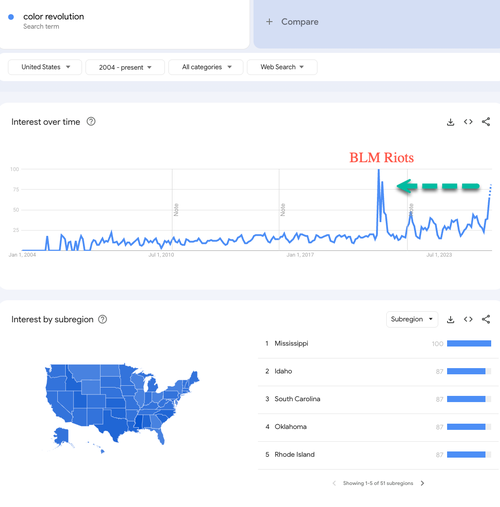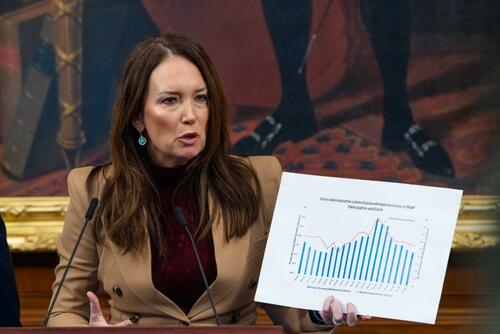(0:00 - 1:20)
Recently, Dr. Peter McCullough appeared once again before a U.S. Senate committee on the COVID vaccines. His 16-minute video of his testimony, posted to YouTube, went viral for the force of his statements. In those statements, Dr. McCullough made reference to the myocarditis data that was found by himself and his fellow researchers.
Researchers included two Canadians, Dr. Jessica Rose, an expert on VAERS, and Dr. William Makis, Canada's top cancer researcher. The primary researcher for the paper that Dr. McCullough referred to in the hearing is Dr. Nathaniel Mead, who has worked with the McCullough Foundation closely in the past several years. Dr. Mead is an epidemiologist and one of the most meticulous researchers and data analysts in the world.
The data revealed in that paper is extremely alarming. Tens of millions of people around the world now have myocarditis as a result of the COVID shots, a condition which will shorten their lifespans. Dr. McCullough and Dr. Mead join me today to reveal what they found and to explain it in terms that all of us can understand.
(1:21 - 6:20)
Dr. McCullough also discusses effective treatments for those afflicted with myocarditis as a result of the shots. If you or someone you know has myocarditis, there is hope as Dr. McCullough's treatment protocol has proven to be very effective. Nathaniel, Peter, welcome to the show.
Thank you. Thank you. And I asked you gentlemen in today because we saw your testimony, Peter, in front of the Senate recently.
Very powerful testimony. You hear people here in talking about it, about how you really gave them the gears. And you were very, very direct and blunt.
And then Nathaniel was kind enough to send me a link to your paper. And there's some extremely alarming numbers in here, gentlemen, in terms of myocarditis. So you're the experts.
Would you mind telling the audience what you found in this study? It was really much more than a study. It was a very comprehensive review. We looked at susceptibility factors.
We looked at the effects of age and gender, looked at chronic inflammation as a background factor. We also looked at all of the things that would typically predispose people toward myocarditis linked with the COVID-19 mRNA shots. And then we looked at the epidemiology and saw that many of the studies had been overlooked by the agencies, more severe outcomes, which were due to the the effects on young men in particular, but also younger people in general, young women too, were being overlooked.
And so when you don't stratify according to age and gender, you then often miss the more important findings of a study. So that was a big focus of the paper. And then Dr. McCullough and I talked about doing an overview of the three major misconceptions that have dominated the discussion around myocarditis and heart cardiac issues linked with the COVID shots.
And so those three misconceptions were that the COVID infections cause more myocarditis than the injections or the COVID shots. The COVID infections cause more severe myocarditis than the COVID vaccines. And then the third one is that the risk-benefit analysis favors the vaccines.
And so we addressed all three of those in great detail. Yes, and I'm going to read a statistic here from your study. And please correct me if I'm getting this wrong.
I did read your study, but I'm not a scientist. Approximately 10 excess myocarditis events per 100,000 persons after dose two in males under four years compared to 1.6 per 100,000 after infection with COVID in the same group. That's, what's that, 70 times? Well, keep in mind, cardiologists, and I look at the data very carefully, keep in mind that there are, you know, some definitional flaws into this whole field of inquiry.
For example, when people are hospitalized with COVID, you know, as they are with pneumococcal pneumonia or influenza, there is a routine blood draws called troponin. And as a blood test to indicate whether or not there's any cardiac strain or injury, about a third of troponin testing in critically ill patients of all types is positive. So the literature ran with that and said, well, COVID-19 patients have positive troponins, so therefore they must have myocarditis in the hospital.
Well, none of those studies adjudicated myocarditis. None of them evaluated BKG changes or echo or cardiography or MRI changes. They were just simply positive troponins.
You could have made that claim for a pneumococcal pneumonia. So the entire literature that the COVID infection causes myocarditis, in my view, was not valid at all. What we could find is we could find some rare cases of putative myocarditis.
(6:21 - 8:29)
So for instance, Daniels and colleagues studied the NCAA athletes in 2020, and this is a fair analysis because there's no vaccine at this time. You know, about 10,000 athletes, they found what they thought was about 36 putative cases where there was troponin, EKG, MRI testing, no hospitalizations, no deaths. Tuvalian colleagues in Israel studied myocarditis again before the vaccines came out, and it was still different from the background.
It's very rare. It occurs from Coxsackievirus and some other causes. So there was no credible evidence that there was myocarditis from the infection.
What there was is the infection can shrink our heart attacks, which is acute blockages of coronary arteries, with about the same risk as influenza. So all this got rolled in, and Dr. Mead did a very meticulous analysis. And even if we credit the infection with posing some cardiac risk, what we found is the vaccine caused much greater cardiac risk than the infection ever did.
Now, an important question for you here, as you are, of course, a cardiologist, in fact, the most published one in history, so very much your area of expertise. When I was reading the paper, I noted that you mentioned lymphatic myocarditis, and I confess I had to look that up. But this is an autoimmune condition in which the immune system is attacking the heart.
So is this more severe than regular myocarditis, which is an inflammation in the heart? Well, you could consider, let's say, Coxsackievirus myocarditis. Now, that's long before the pandemic. I've seen a few cases in my career.
It's an infection, and it comes and goes. It's gone. Ultimately, the body has barely infected.
Now, consider the vaccine. Crosson and colleagues found Pfizer and Moderna messenger RNA physically in the heart. Bollmeier from Germany has found the spike protein from the messenger RNA physically in the heart of people with myocarditis that either died or had biopsies.
(8:29 - 12:00)
It's much different than other kinds of myocarditis. So you can imagine the messenger RNA setting up shop in the human heart, producing spike protein. The spike protein is expressed, and then the immune system is constantly attacking the heart.
And it occurs probably for years after taking the shots. Right. Now, Dr. Mead, I have a question for you, once again, on the data.
So this is something that you can address. Because reading through it, I would say it's a discrepancy. I'm sure what it is is it's a difficulty in finding data.
But as we were just referring to, the lymphatic myocarditis was found in 20% of 25 unexpected deaths post-vaccination. So that would be five of them. However, positive surveillance systems like VAERS underestimate myocarditis insu, which we know, with prospective studies reporting rates up to two and a half percent or 2,500 per 100,000 after the second or third dose.
So it seems to me that this incidence of myocarditis has got to be somewhere between those two numbers. Do we have any kind of educated guesses of where we're landing here in terms of the number of people who've been affected by this? We do think it's somewhere between 2% and 3%. The important thing is, and Dr. McCullough alluded to this, with the subclinical myocarditis, it's often missed as a serious adverse event because of the microscoring that can occur.
And so anytime you had some damage to the heart, you could have a long-term repercussion. Of course, most people are aware of myocarditis as a trigger for heart failure. But what I was surprised to see was, and I think this was very true in general of what happened during the pandemic, so much mischaracterization of myocarditis occurred because there was a bias toward linking it with the virus.
And so determining the incidence is a little tricky because you often had an overlapping of the viral infection either before or after the shots. So you've got a piggybacking of the spike and the lipid nanoparticles and the DNA contaminants all down, which is part of the COVID-19 vaccination, affecting people for an extended period of time. As Dr. McCullough referred to a couple of years, we know 709 days is the most recent figure where you have prolonged production of spike protein as a result of these shots.
And so anything that happens in that interim, let's say somebody does get exposed to COVID, in this case, omicron variants, they test PCR positive, it's going to be attributed to the infection. And the other thing that we saw, so that's obviously, in that case, it could be both. It could be that you're having the infection and the vaccination interacting, or it could be that the vaccination most likely started the initial insult to the myocardium, the heart muscle.
(12:01 - 12:35)
And then we saw the additional effect of the infection possibly contributing to what was the precipitating event that led to it being called myocarditis. There is a major stock market crash coming that will rival the crash of 1929. But there is a way to not only protect your wealth, but profit in the coming crash.
(12:36 - 14:25)
The stock market chart today looks exactly like the charts prior to October 1929. Banks are disastrously over leveraged, and several major US banks have already failed. And the CDIC, the Canadian Deposit Insurance Corporation, doesn't have nearly enough money to cover depositors.
If you have money in the stock market, it is time to get out. Governments and corporations around the world are buying up precious metals in record amounts, because they know the coming crash will make their other assets nearly worthless. You can buy precious metals at wholesale prices, through New World Precious Metals, at premiums substantially below other Canadian brokerages.
And you can even transfer savings in your RRSP tax-free. To get more information, use the link below this video to contact New World Precious Metals. They will answer any questions you may have.
You may also wish to contact Adrian Spitters, a personal financial consultant who successfully predicted the stock market crashes of 2000 and 2008. You will find Adrian's contact information below as well. Finally, if you want more information on the coming crash, and what you can do to protect yourself, your family, and your assets, see my most recent quarterly update with my team of financial experts at IronWiredaily.com. By clicking the link below to contact New World Precious Metals, you will also be helping to support our efforts to bring Canadians the truth, as we are an approved affiliate partner.











